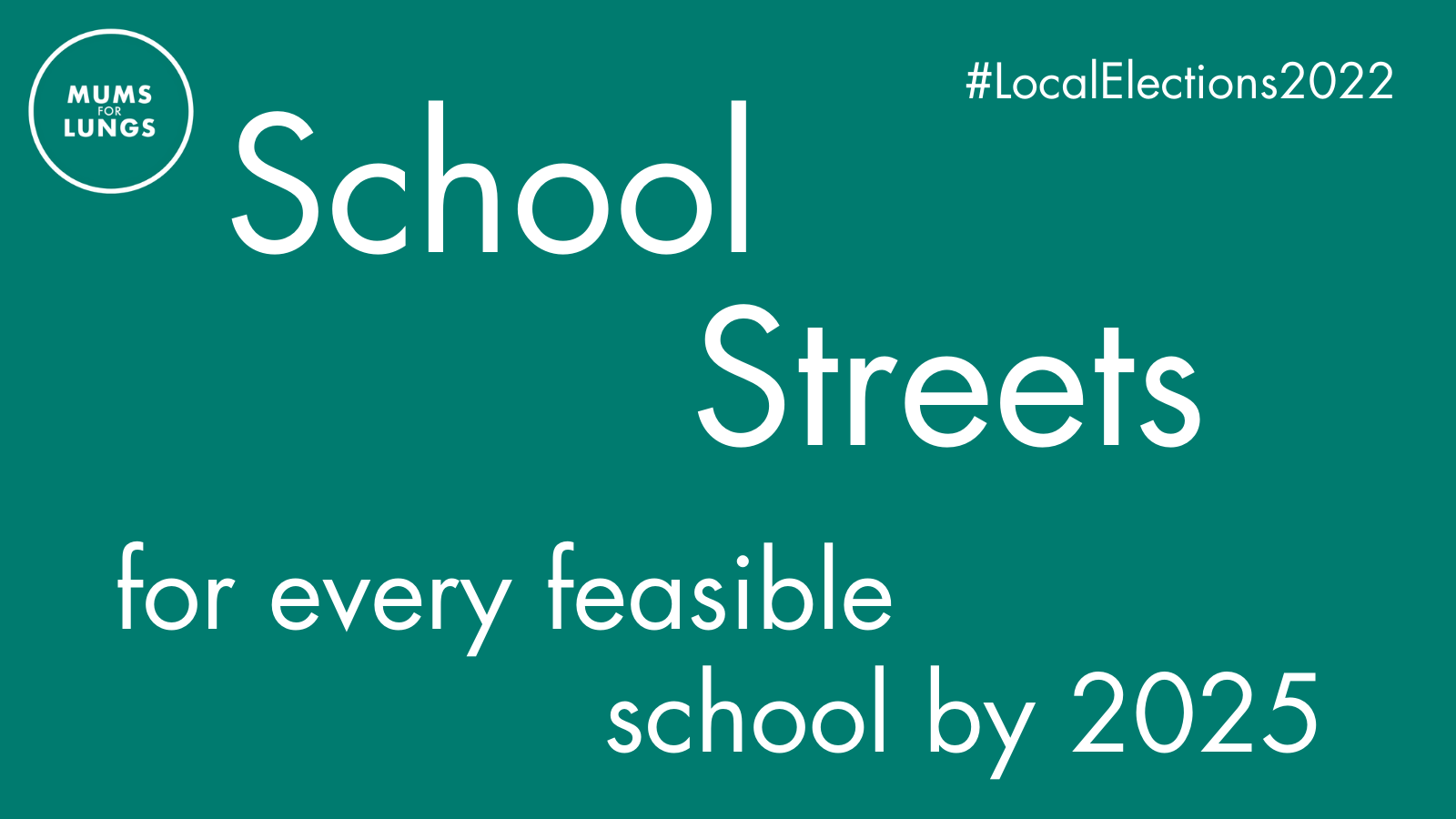Local Elections 2022
Image by Crispin Hughes, of the clean air arts workshop created at Kingswood Primary School by artist Linett Kamala and Year 3 pupils.
Local elections are coming up across the country in May. These are the first elections taking place since some local authorities have declared “Climate Emergencies” and the first ones since the Covid19 pandemic has highlighted the need to support lung health. They happen against the backdrop of people repeatedly voicing their concern about the climate crisis, health and air pollution as their top priority to be addressed.
We want to ensure that strong action to tackle air pollution is high on council agendas. We’ve come up with a set of asks that we want parties to commit to - we welcome you to do the same, wherever you are, adapted as necessary for your own campaigns.
Our four asks are:
1. A clean air cabinet member
Having clean air in a cabinet member’s title reminds councils that air pollution is a priority to be considered across all council work, and helps the public to realise its importance too. It gives a hook to push for progress, ask for meetings, and hold councils to account. It was a successful ask for us in the 2018 local elections; Lambeth Council still has a cabinet member covering this portfolio.
2. A diesel-free borough by 2030
We want to see a commitment to phasing out diesel car ownership across boroughs by 2030. Research by the Environmental Defense Fund (Europe) highlights really clearly that diesel is the single biggest contributor of NOx/NO2 (which is the pollutant that inflames lungs, and is closely linked to childhood asthma and wheezing). Reducing the number of diesel engines in the city would be a bold and effective step towards cleaning up our air.
The Government has promised to phase out the internal combustion engine by 2030, with all cars to be zero (tailpipe) emission by 2035. We need to see councils being bold, and taking strong action to help consign diesel to the past.
Ideas for implementing a diesel phase-out include:
Providing no new parking permits for diesel cars from 2023 (exempting blue badge holders), where controlled parking zones are applied. Existing permits would remain.
A complete phase-out of diesel car parking permits by 2030.
All paid for car parking (e.g. pay-and-display) to take emissions into account by 2023.
An on-street car parking reduction target, including local parks.
Working with Business Investments Districts (BIDs) to reduce their emissions.
Introducing controlled parking zones across the boroughs.
3. Campaign to phase out wood burning
We want to see local councils taking leadership on this hugely polluting issue by using all channels available to them to raise awareness of the health impacts of wood burning amongst residents, and lobbying the Government with the Mayor of London to either phase out domestic wood burning where not necessary or devolve the necessary powers to local authorities.
Even the newest, cleanest Ecodesign wood burning stoves emit more particulate matter than 750 diesel HGV trucks. It is currently very difficult for local councils to tell if someone is burning legally or illegally and enforce (low) fixed penalty notices. Local authorities need more powers, but in the meantime we are asking them to raise awareness as much as they can, through the use of social media, council newsletters, flyers, bus stop posters and local magazines.
4. A School Street at every school by 2025, with an alternative package of support where this is not feasible
All children deserve a healthy and safe start to the day. School Streets are proven to reduce traffic and increase safety; not only that but travelling actively to school has been shown to improve learning outcomes. We have campaigned for School Streets for four years now, and with the huge rise in the number of schemes across London in the last two years, we believe this is a very popular scheme which boroughs should introduce or expand on. We ask councils to follow Islington Council’s lead, and ensure all feasible schools (although secondaries as well as primaries) can implement the scheme. Alternative options for those schools which cannot have their road closed include green screens to reduce the level of pollution within the school grounds, moving school entrances and playgrounds, and implementing controlled parking zones from 8:30am to 6pm to discourage parents from driving to school, in a radius of about 300m around schools.





